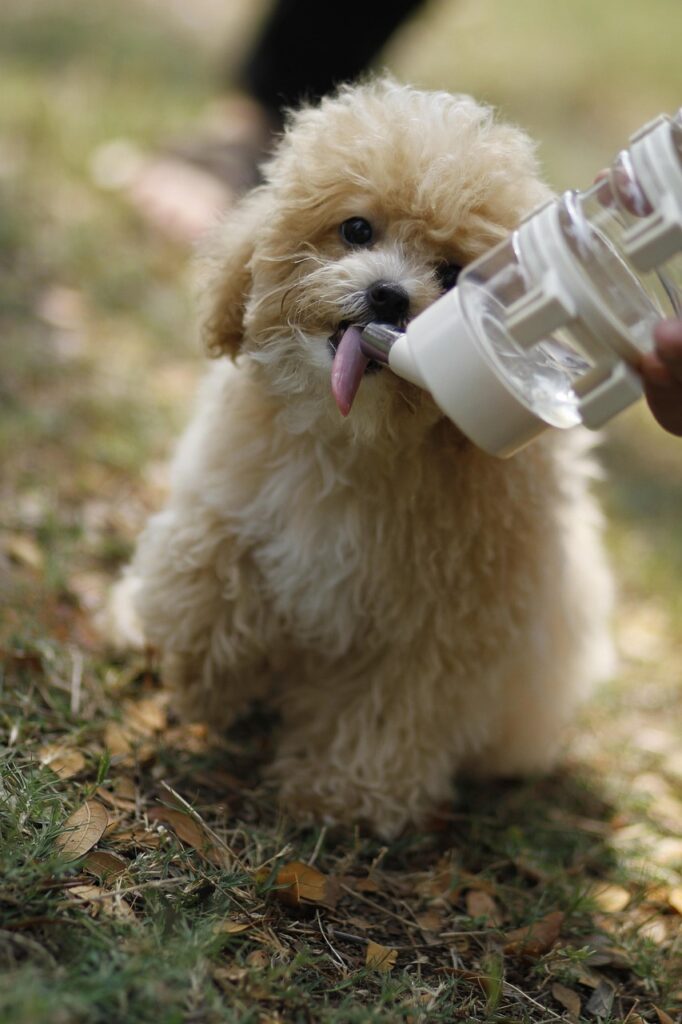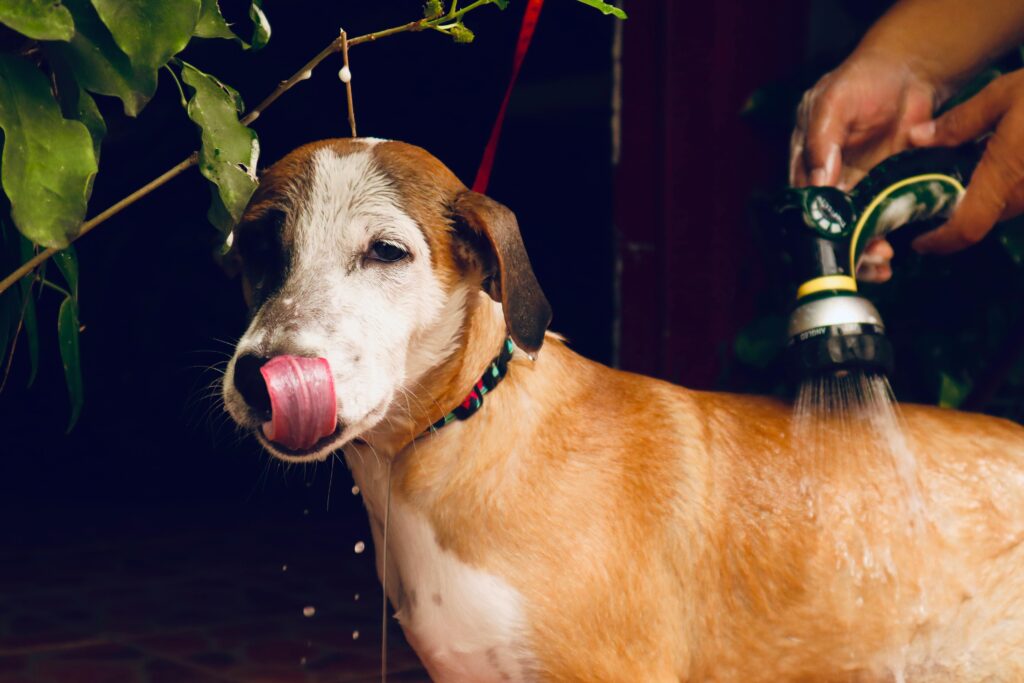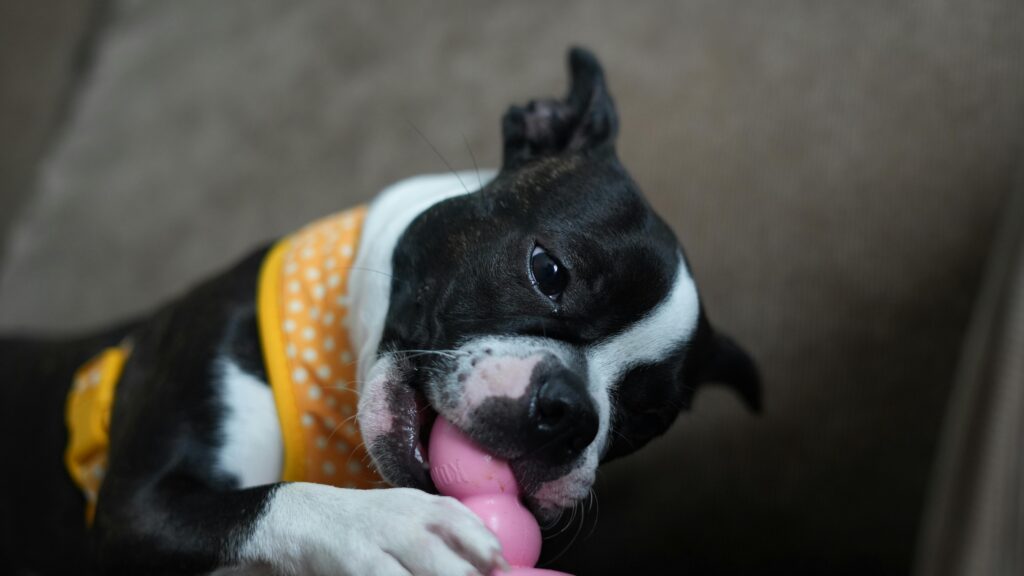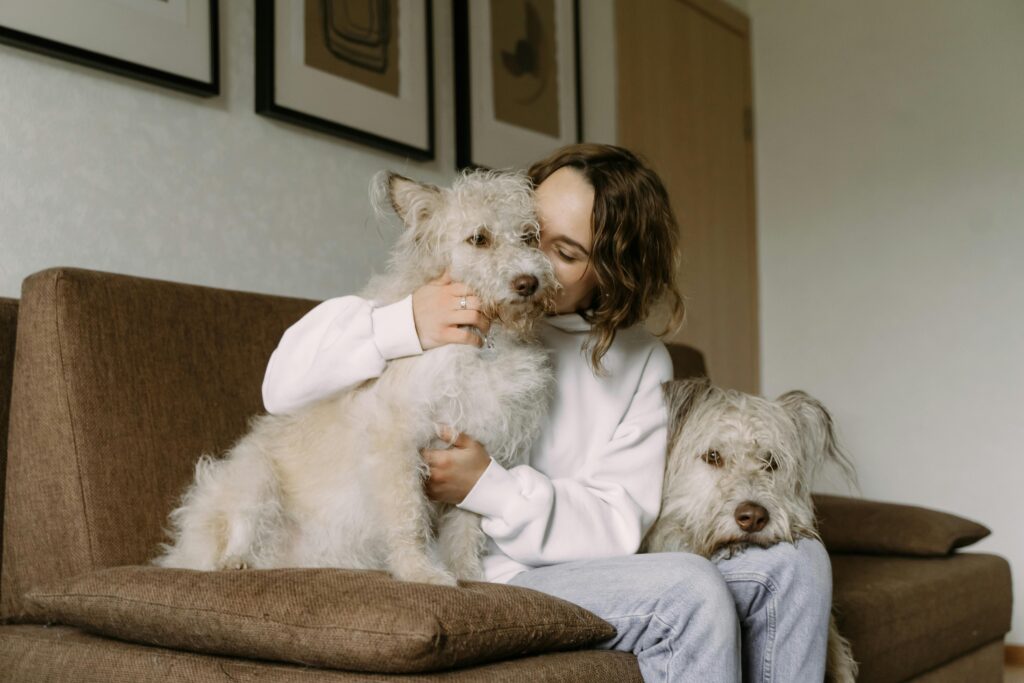As a puppy owner, puppy hiccups are normal for me. I often see my puppy hiccup; it is a normal occurrence. Hiccups are common in mammals. While they can be uncomfortable, they usually heal naturally.
What Are Hiccups in Puppies?
Hiccups happen when the **diaphragm—**a muscle that helps control breathing—contracts involuntarily. This sudden contraction causes air to rush into the lungs, making the vocal cords close briefly. The result? That familiar “hic!” sound.
Just like in humans, hiccups in puppies are harmless most of the time and usually go away on their own. But understanding what triggers them can help you reduce how often they happen.
Why Do They Hiccup?
Although there are many reasons for hiccups, some of the main ones are:
- Eating or drinking too quickly
- Irritation in their throat
- Feeling cold
- Being excited or stressed
- Eating too much
Example
Those who are already familiar with puppies may be able to imagine why hiccups happen and why their causes are normal. The causes of hiccups are as natural as they are in humans. Although not everyone may understand them, it is necessary to explain them.
Eating or Drinking Too Quickly
When puppies eat, they seem to have little patience for themselves. They want to eat quickly, and this is often when hiccups occur. It takes some time to swallow food and prepare for the next bite. If this time is not taken, our puppy will hiccup. Therefore, we need to prevent our dogs from eating too quickly.
Sore Throat
This problem usually occurs when there is too much salt in the dog’s food. We should try to reduce the amount of salt in the puppy’s food. Since they are still small puppies, we need to take care of them accordingly. We have to remember that they are like our children. So they should be treated as such. We should do our best to provide them with what is right for them while feeding them.
Cold
This is a complete illness. What can we say about this? We can only recommend keeping puppies away from cold-related problems. If you do not know why puppies feel cold, I can offer some suggestions. I have tried these on my puppies with very good results.
Remember that when we say “cold,” we are referring to a type of illness. There are many reasons why a dog may feel cold. For example, right now, as I am writing this, I feel cold, and after a while, I may feel even colder. The same thing happens with puppies.
Moreover, we should prevent them from eating cold food, especially during winter. It is better to avoid giving them cold liquids like fruit juice, water, or refrigerated food. Let them drink lukewarm water, which will help them feel healthier during winter.

Eating Too Much
This problem often occurs because of overeating. We, who are fortunate enough to afford more, may think that dogs should be given as much food as they want. However, we must remember that this is not beneficial. Dogs are happy animals, but they cannot control their greed when they see a lot of food, so they may overeat. Later, their stomachs and throats may become overly full, causing hiccups. We must refrain from giving them too much food out of emotion. Instead, we should provide them with a sufficient amount of food and aim to leave their stomachs about one-fourth empty, which helps prevent digestive problems.
Excitement and Stress
If you are a true dog lover, you may have given your puppy various new and interesting foods. Just as these delicious foods make us or the puppy happy, the excitement we feel while consuming these foods may cause puppies to hiccup. Therefore, we cannot let our puppies get overly excited while feeding them.
There is another reason for hiccups in puppies that I have realized myself. You may not hear this elsewhere. I have often seen my puppies hiccup when they are suddenly scared, which I believe to be true. In such cases, I try to calm them down. I sit next to them, hug them, and do whatever I can to help them feel calm, such as waving my hand or using various command sounds to make them feel safe. Finally, I help them get rid of hiccups by giving them safe drinking water.
Are Hiccups Bad for Puppies?
Most of the time, hiccups in puppies are completely harmless and last only a few minutes. They don’t cause pain or distress. However, frequent or prolonged hiccups could indicate an underlying issue.
When to Worry About Puppy Hiccups:
- Hiccups last longer than 1 hour.
- Your puppy appears in pain or distressed.
- Hiccups are accompanied by coughing, wheezing, or difficulty breathing.
- Your puppy is vomiting or has diarrhea.
- Hiccups occur very frequently (several times a day).
If you notice any of these signs, it’s best to consult a veterinarian.
How to Help a Puppy Stop Hiccupping
While hiccups usually go away on their own, there are a few things you can try to help them stop faster:
1. Offer Water
Sometimes, a few sips of water can help regulate your puppy’s breathing and relax the diaphragm.
Pro tip: Use room temperature water instead of cold water to prevent further irritation.

2. Gentle Belly Massage
A soft belly rub can help relax your puppy’s diaphragm and ease hiccups.
Pro tip: Make gentle, circular motions on your puppy’s belly while they’re lying down.
3. Slow Down Their Breathing
Encouraging slow, deep breaths can stop hiccups. Try:
- Holding your puppy close to you and speaking softly.
- Encouraging slow, calm movements instead of play.
Pro tip: If your puppy is too excited, let them rest quietly until hiccups stop.
4. Adjust Their Position
If your puppy is lying down, try changing their position. Sitting upright can help relieve pressure on the diaphragm.
Pro tip: Encourage them to stand or walk around gently.
5. Offer a Small Treat
Chewing and swallowing can help reset the diaphragm, stopping hiccups. A small, soft treat or a teaspoon of plain yogurt can sometimes do the trick.
Pro tip: Avoid large or crunchy treats that might cause more air intake.
Can Certain Health Conditions Cause Hiccups in Puppies?
In rare cases, frequent or prolonged hiccups may indicate an underlying medical condition. Some possible causes include:
1. Respiratory Issues – If hiccups come with wheezing, coughing, or difficulty breathing, it could be a sign of pneumonia or bronchitis.
2. Acid Reflux – Some puppies experience acid reflux, which can cause hiccups and mild discomfort after eating.
3. Worms or Parasites – Certain intestinal parasites can cause digestive upset, leading to hiccups.
4. Neurological Disorders – In very rare cases, frequent uncontrollable hiccups could be linked to nerve-related issues.
If your puppy’s hiccups are severe, painful, or frequent, see a vet for a check-up.
Final Thoughts: Should You Worry About Puppy Hiccups?
Hiccups in puppies are adorable and usually harmless. They’re just another quirky part of puppyhood that most dogs outgrow.
Key Takeaways:
Most puppy hiccups are caused by eating too fast, excitement, or temperature changes.
Hiccups are normal and usually go away in a few minutes.
Helping your puppy relax, drink water, or chew a small treat can stop hiccups faster.
See a vet if hiccups last over an hour, happen too often, or come with other health concerns.
So next time your puppy gets the hiccups, just smile, wait it out, and maybe give them a gentle belly rub.
Have you ever seen your puppy get hiccups? Share your experience in the comments!




